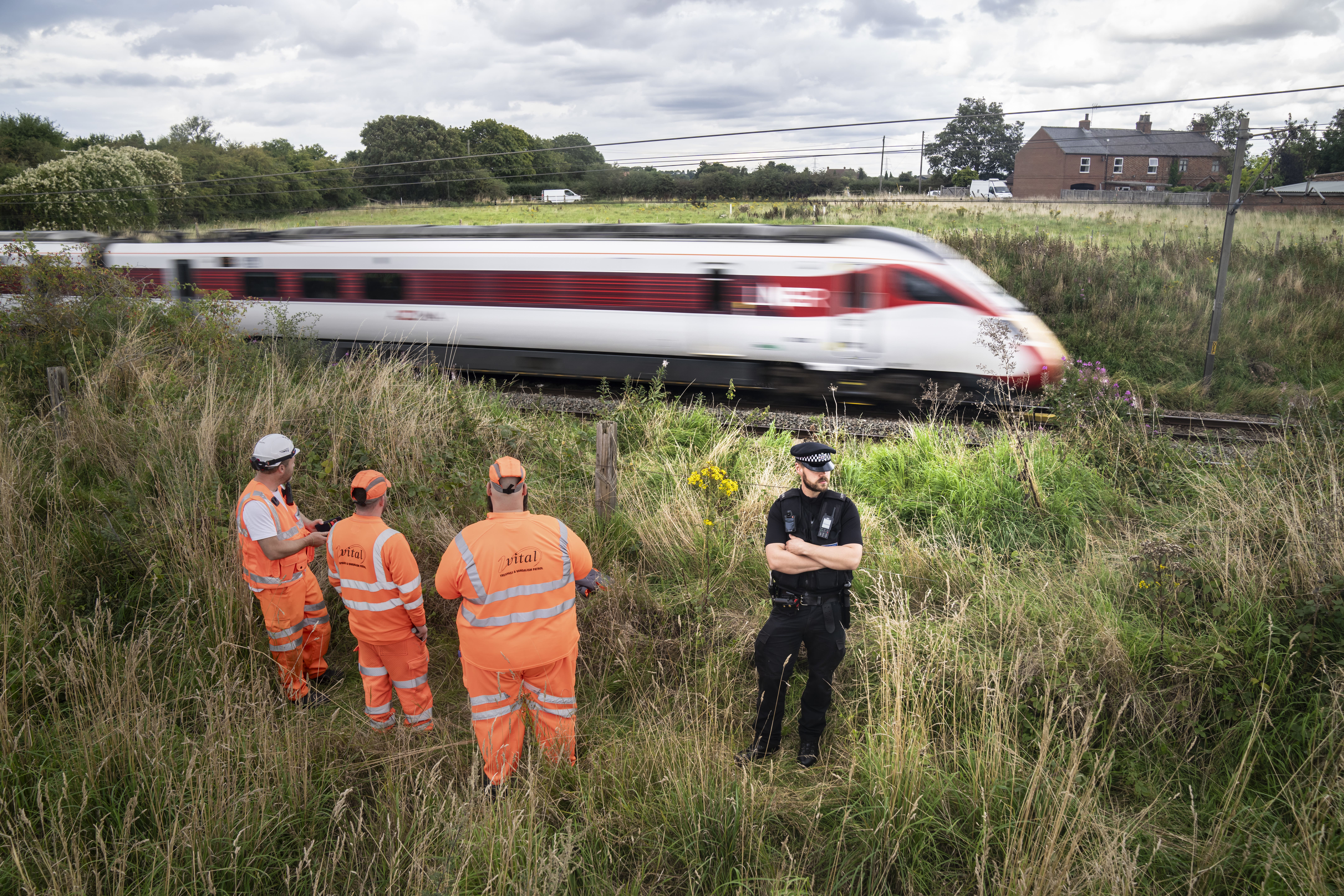No criminal inquiry into death of police officer hit by train
Sergeant Graham Saville was fatally injured while trying to save a distressed man on the railway tracks in Balderton, near Newark-on-Trent.

Police are not carrying out a criminal investigation into the death of an officer who died after being hit by a train as he attempted to save a distressed man on the tracks.
Sergeant Graham Saville, a response officer based at Newark police station, suffered serious injuries in the incident in Balderton, near Newark-on-Trent, on Thursday August 24, and died in hospital on Tuesday.
British Transport Police are leading the inquiry into the incident, which led to the 29-year-old man on the railway line being treated in hospital for injuries caused by electricity.
It is understood that in similar situations emergency services would usually contact Network Rail’s route control to ensure the tracks are made safe before police officers attempt access.
However, it is also understood there are some circumstances in which emergency workers may access the railway without making a call in order to prevent someone from coming to immediate harm.
British Transport Police would not give details about what happened or whether such a call was made to Network Rail.
Network Rail declined to comment on whether they were contacted due to the ongoing investigation by the British Transport Police.
Sgt Saville, 46, who was the uncle of Nottingham Forest football club captain Joe Worrall, was taken to Queen’s Medical Centre and died on Tuesday, Nottinghamshire Police said.
A JustGiving fundraiser for the family of the “hugely respected” officer has reached more than £90,000 in donations.
The crowdfunding page is attempting to raise £100,000 – describing his actions as the “epitome of policing bravery”.
Metropolitan Police Commissioner Sir Mark Rowley said Sgt Saville began his policing career in London, serving as a special constable before transferring to the regular service – working across neighbourhood teams and response.
Since his death on Tuesday, tributes have flooded in from senior officers at Nottinghamshire Police, as well as senior politicians.
Prime Minister Rishi Sunak posted on X, formerly known as Twitter, to say it is a “testament to his bravery that he died in the line of duty”, adding that it is a “terrible reminder of the work the police do every day to keep us safe”.
Nottinghamshire Police Chief Constable Kate Meynell described Sgt Saville as a “hugely respected and popular colleague”, and said his death had “come as an enormous shock to us all”.
She said: “On Thursday, he went to work to protect the people of Nottinghamshire from harm, and it is testament to his bravery and dedication as a police officer that he was fatally injured while attempting to save another man’s life.
His service and sacrifice will never be forgotten
“His service and sacrifice will never be forgotten.”
Ms Meynell also paid tribute to officers who attended the scene, some of whom provided “immediate medical assistance” while waiting for an ambulance.
Paying his own tribute, Sir Mark said: “Sgt Saville was demonstrating the very best of policing when he was injured.
“Courageously and selflessly, he was prepared to risk his life to save another.
“In what is the most unimaginable moments for them, Graham’s loved ones, his colleagues both within Nottinghamshire and here in the Met, can rightly be proud of him.”
Bookmark popover
Removed from bookmarks